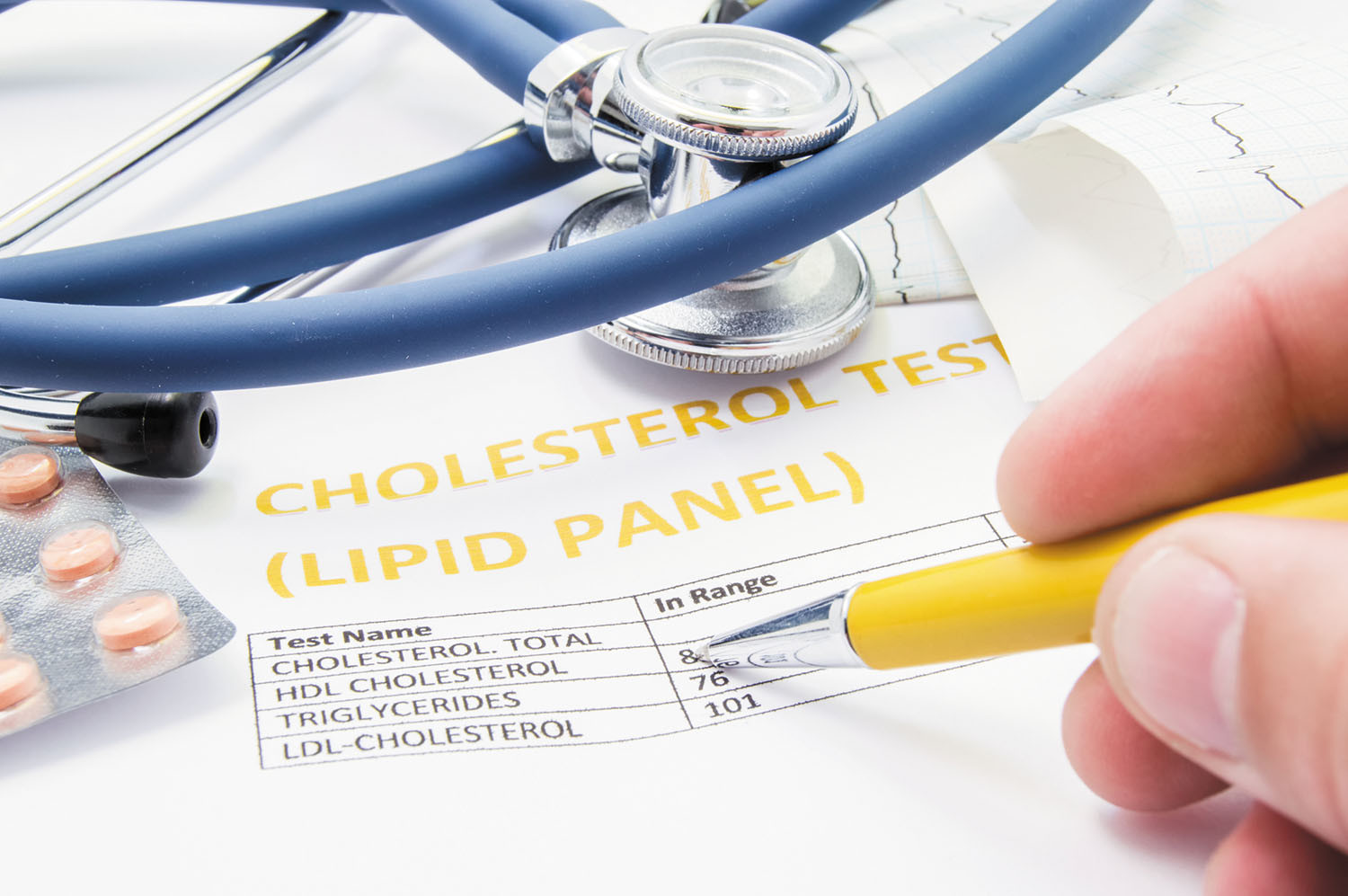
5 timeless habits for better health

What are the symptoms of prostate cancer?

Is your breakfast cereal healthy?

When pain signals an emergency: Symptoms you should never ignore

Does exercise give you energy?

Acupuncture for pain relief: How it works and what to expect

How to avoid jet lag: Tips for staying alert when you travel

Biofeedback therapy: How it works and how it can help relieve pain

Best vitamins and minerals for energy

Should you take probiotics with antibiotics?
Cholesterol Archive
Articles
High “bad” cholesterol may raise heart risks all by itself
Research we're watching
Image: © donskarpo/Getty Images
Having high levels of "bad" LDL cholesterol may put you at higher risk of dying from cardiovascular disease — even you are otherwise considered at low risk. A study published online August 16 by the journal Circulation came to this conclusion by looking at data from more than 36,000 patients who had no history of cardiovascular disease or diabetes and were classified as low risk for developing cardiovascular disease over the next 10 years.
Researchers tracked participants for approximately 27 years and found that people who had LDL levels of 160 or higher were 70% to 90% more likely than those with LDL cholesterol levels below 100 to die from cardiovascular disease during the course of the study.
Eczema may signal higher risk of cardiovascular problems
Research we're watching
Image: © Tharakorn/Getty Images
About one in 10 people has eczema, a chronic inflammatory condition that leaves skin dry and itchy. People with more severe forms may experience a scaly rash or skin that cracks and oozes. These people may also be at greater risk for heart attack and stroke, according to a study in the May 23 issue of The BMJ.
For the study, researchers analyzed data from more than 385,000 adults with eczema, which was classified as mild, moderate, or severe. Each was matched with up to five people of similar age and sex who didn't have eczema.
Facts about alcohol and heart health
Studies have shown that alcohol can have a good or bad impact depending on how much you drink.
Image: © kali9/Getty Images
Should you enjoy that glass of wine with dinner? Is it okay to relax with a cold beer? When it comes to your heart health, the answer is not clear. The existing research is quite conflicting — some studies say alcohol improves heart health, while others imply the reverse.
So, what's the truth?
"It comes down to moderation," says Dr. J. Michael Gaziano, a preventive cardiologist with Harvard-affiliated Brigham and Women's Hospital's Division of Aging and VA Boston. "A safe amount — about one drink per day — may support a healthy heart and lower your risk of heart disease, while too much can be damaging."
3 diet changes to help lower cholesterol levels
By lowering your blood LDL ("bad") cholesterol level, even if it is normal, you help reduce your chances of having a heart attack. It's especially important if the LDL level is above 130 milligrams per deciliter. For every 10% drop in your cholesterol level, your heart attack risk potentially falls by 20% to 30%.
There are several steps you can take to lower your cholesterol level, like losing weight if needed, being more active, and choosing healthy foods. Here are three simple steps toward a healthier, cholesterol-lowering diet:
Vegetable of the month: Peppers
Image: © Josef Mohyla/Getty Images
Peppers, which belong to the genus Capsicum, come in a variety of colors, shapes, sizes, and flavors. Bell peppers (available in green, yellow, orange, red, and even purple) make a nice addition to a salad or plate of crudités. Supermarkets carry bags of assorted mini bell peppers that are convenient both for snacking and using in recipes.
While sweet bell peppers are crunchy and mild, hot peppers — such as jalapeños, serranos, and habaneros — provide a tongue-tingling punch of heat. They contain varying amounts of the phytochemicals responsible for the spiciness in hot peppers.
Inherited high cholesterol often goes untreated
Research we're watching
About four in 1,000 adults in this country are born with a genetic condition marked by abnormally high cholesterol levels, known as familial hypercholesterolemia (FH). Their "bad" LDL cholesterol can be two to three times as high as the common target LDL value of 100 milligrams per deciliter (mg/dL) or lower for healthy people. But only about half of people with FH are getting proper treatment for the disease, according to a report in the May 22 issue of Circulation.
For the study, researchers analyzed health surveys done between 1999 and 2014 with nearly 42,500 adults in the United States. Although more than 80% of people with FH or severely high cholesterol were aware of their condition, only half were taking cholesterol-lowering statins. And among those who were, only one-third were taking optimal doses of the drugs.
The new, potent cholesterol-lowering drugs: An update
For people at high risk, PCSK9 inhibitors may prevent heart attacks and save lives. But gaining access to these pricey drugs remains a challenge.
Image: © Shidlovski/Getty Images
Three years ago, the FDA approved two drugs that lower harmful LDL cholesterol values dramatically — by more than 50%. The drugs, alirocumab (Praluent) and evolocumab (Repatha), belong to a new category of medications known as PCSK9 inhibitors. Both are given by a self-administered injection once or twice a month.
They're intended for people whose cholesterol levels remain stubbornly high, despite making lifestyle changes (such as diet and exercise) and taking the maximum dose of a high-potency statin and other cholesterol-lowering drugs. In the past two years, results from two large studies found that both PCSK9 inhibitors lowered the risk of serious heart-related events such as heart attack and stroke by 15%.
Noisy workplaces may boost cardiovascular risk factors
Research we're watching
Is your workplace noisy? You may want to keep close tabs on your blood pressure and cholesterol. A CDC study published in the American Journal of Industrial Medicine found that high cholesterol and high blood pressure were more common among workers who toiled in noisy environments.
The study found that 25% of U.S. workers surveyed reported experiencing noise exposure at work. The noisiest industries included mining, construction, and manufacturing.
Statin use: Uncommon in younger heart attack patients
Research we're watching
Cholesterol-lowering statins may be underused in younger people at risk for heart attack, new research suggests.
The study, in the Jan. 23, 2018, Journal of the American College of Cardiology, included more than 1,600 people ages 50 and younger who had experienced a heart attack. Only one in eight was taking a statin before the heart attack.
How does my health compare with President Trump’s?
On call
Image: © donskarpo/Getty Images
Q. I am about the same age as President Trump, and I also had a recent physical. My LDL (bad) cholesterol reading was 136, which my doctor thought was too high. But Mr. Trump's doctor said his LDL cholesterol of 143 was "excellent." Which is it?
A. The report of President Trump's health status brought out many armchair cardiologists — and real cardiologists — to comment on his cholesterol levels and risk for heart disease. The White House doctor's report stated that the president's "heart health" (not his cholesterol) was deemed excellent based on a normal exercise test and heart ultrasound. However, his LDL level of 143 was felt to be too high, and his doctor recommended doubling the president's statin medication. While the president doesn't show evidence of current heart disease, what is his future risk? A 71-year-old man with his cholesterol value would have a 10-year risk of heart attack, stroke, or cardiac death of 16% (about a one-in-six chance).

5 timeless habits for better health

What are the symptoms of prostate cancer?

Is your breakfast cereal healthy?

When pain signals an emergency: Symptoms you should never ignore

Does exercise give you energy?

Acupuncture for pain relief: How it works and what to expect

How to avoid jet lag: Tips for staying alert when you travel

Biofeedback therapy: How it works and how it can help relieve pain

Best vitamins and minerals for energy

Should you take probiotics with antibiotics?
Free Healthbeat Signup
Get the latest in health news delivered to your inbox!
Sign Up











